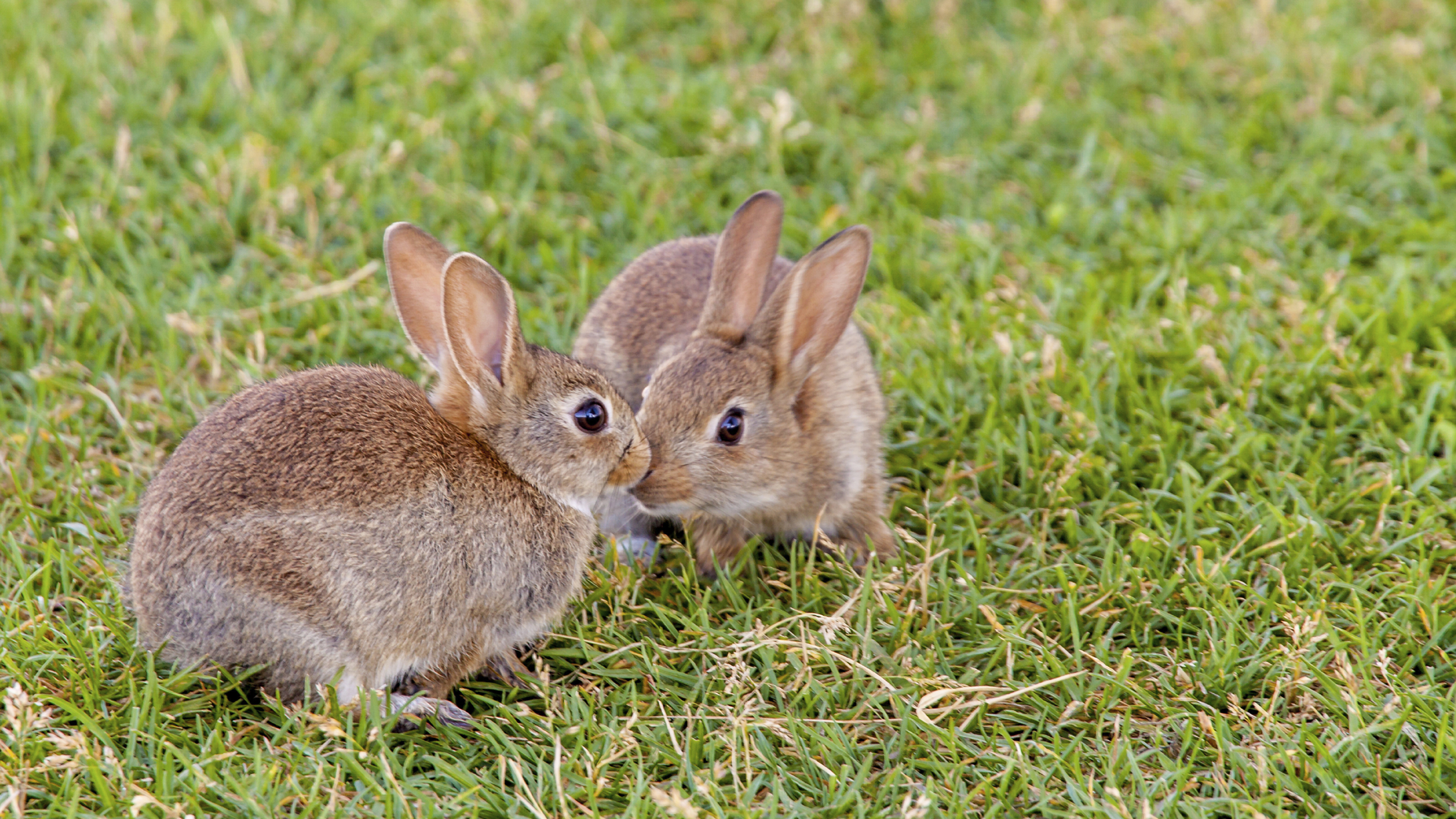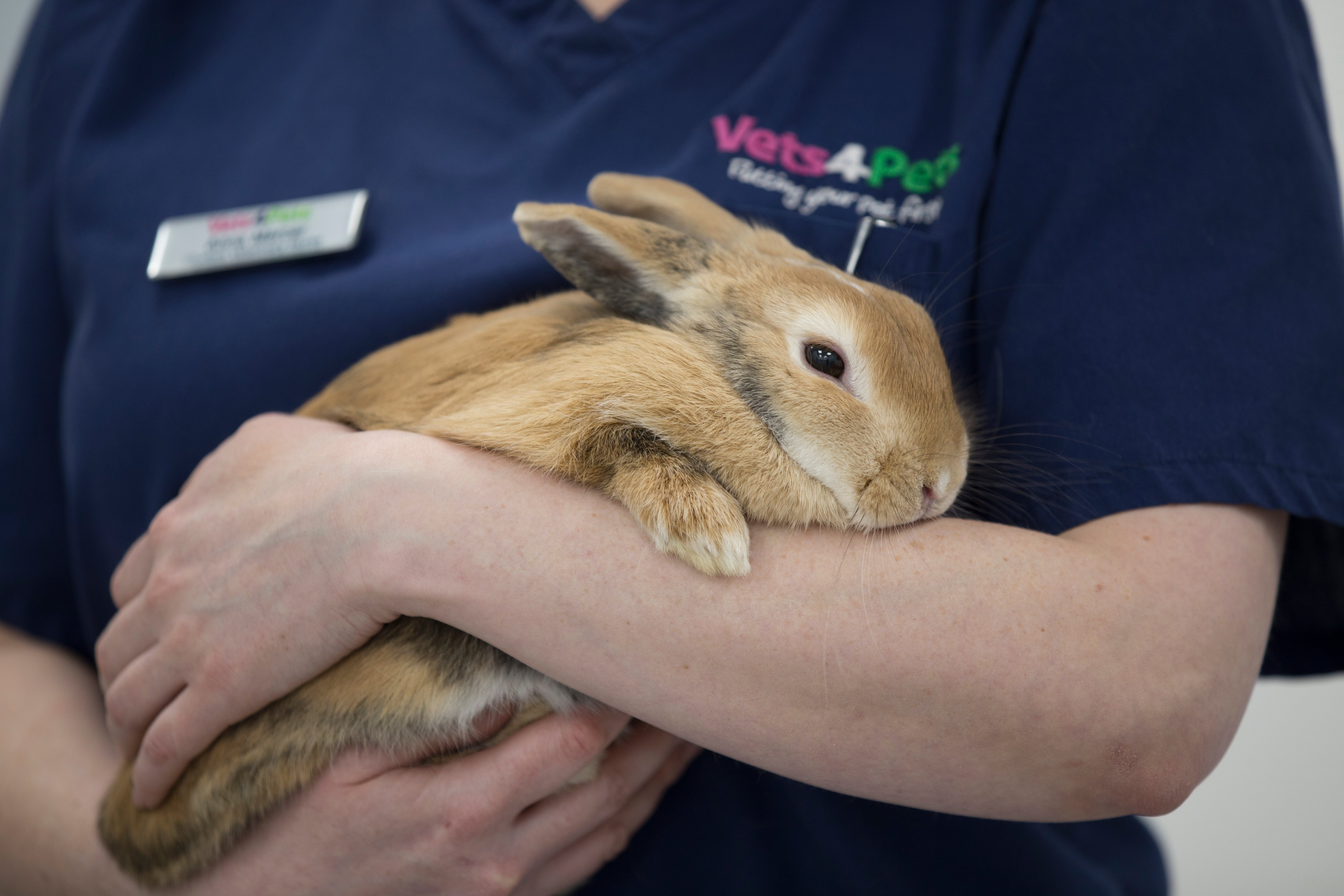
Getting Your Rabbit Neutered
Keeping your rabbits healthy and happy
Neutering a male rabbit means removing its testes, while the equivalent procedure in a female is called spaying – the removal of the reproductive organs. Either way, it is a routine procedure that your vet can perform. Not only does it stop your rabbit breeding, it can also help them live a longer, healthier life with a reduced risk of cancer and calmer relationships with other rabbits. All rabbits not used for breeding should be neutered; rabbits should always be kept with at least one rabbit companion and, even in same-sex pairs, neutering is a vital part of a forming a loving and sustainable bond.
To book your rabbit in to be neutered, or for more information, please contact your local Vets4Pets.
More about neutering your rabbit
Although all surgical procedures can be uncomfortable, recovery from neutering is usually very rapid. In the vast majority of cases rabbits are on their feet within a few hours of the procedure, and are also given pain-relief drugs for the procedure itself, and throughout recovery. Some rabbits may be subdued for a day or so following the procedure, and may appear drowsy or a little wobbly that evening, but most rabbits are back to their normal selves within a few days.
Comprehensive pain relief is especially important in rabbits, as sometimes being in pain can cause them to stop eating. This slows down their guts, and can lead to a potentially life-threatening problem called ileus. All rabbits neutered at Vets4Pets are given strong pain killers, and encouraged to start eating as soon as they wake up. If your rabbit is coming in to be neutered we recommend bringing in their favourite food to have when they wake up!
Full recovery, including skin healing, is generally under ten days. Keeping the area clean will allow that natural healing process to take place as quickly as possible. Rabbits should be kept inside during recovery on clean, dry bedding that won’t stick to or irritate the surgical area – towels are a good option. Your vet will be able to recommend when they can go back to their normal housing at their post-operative check, but this is usually within a week of the operation.
The benefits of neutering your rabbit are seen both for your rabbits and for you.
- No risk of pregnancy. Pregnancy is a difficult time, and rabbits do not get the emotional reward we may from reproducing. Rabbits can have multiple litters per year, and pregnancy and birth both carry risks to both your rabbit and the kittens.
- Improves socialisation. Rabbits need companionship, and a human is not enough, imagine not having any friends who speak your language! Guinea pigs are also not suitable companions. Neutering both is really important, as male-female pairings generally work best socially.
- Less risk of cancer. Sadly, female rabbits are very likely to develop uterine (womb) cancers relatively early in life. They can also develop womb infections, or other cancers such as mammary (breast tissue) cancer. Neutering when young greatly reduces the chances of these occurring.
- Better temper! Neutered rabbits are less temperamental and generally easier to handle, which is especially important if you have children.
- Better house training. Neutered rabbits are much less likely to exhibit these marking behaviours.
- Remove risk of false pregnancies. Unneutered female rabbits often develop false pregnancies, which can cause very hormonal behaviour such as aggression towards their owners or other rabbits.
It is a common misconception that it is healthy, or nice, to let your rabbit have a litter. There are no recorded health benefits for a rabbit to having a litter. As well as this, as rabbits do not form the same lifelong bonds with their offspring as we do, they do not get the same emotional benefit as we may get from having a baby. This means that there is no reason to let your rabbit have a litter, and in fact delaying neutering increases the chance of negative consequences such as urine marking, cancers, unwanted pregnancy and development of unwanted behaviours.
The cost of neutering will vary depending on the gender of your rabbit, and any extra supportive procedures recommended by your vet.
Speaking to your vet directly is the best way to get an estimated price for your rabbit.
Interested in complete peace of mind for your rabbit?
With our Complete Care Health Plan, you'll receive all the healthcare essentials, expert veterinary care and cost savings on routine treatments.

Rabbit Advice
Read more of our expert rabbit advice to keep your rabbit happy and healthy.
